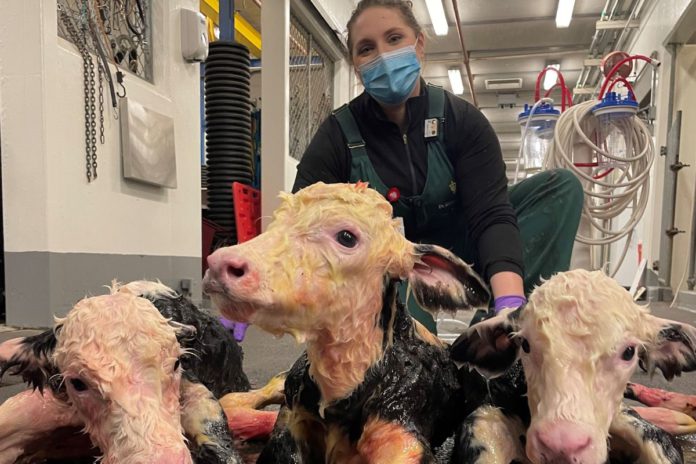As part of this week’s Farm Vet’s Corner, That’s Farming editor, Catherina Cunnane, speaks to a qualified and practicing experienced vet, who provides advice on what not to do when completing work experience/work shadowing at a veterinary practice.
- Do not take the last-minute approach to organising your work placement/work shadowing opportunity: It may not always suit veterinary practices and vets to take you on placement when you wish to undertake it, or they may already be pre-booked. Approach weeks and possibly months in advance and understand that while most practices will attempt to accommodate your request, this may not always be possible, as it may not suit schedules, there could be a double booking. There can be a 10-12-week placement waiting list for some veterinary practices, depending on the circumstances.
- Do not limit your options – broaden your horizons: Do not enter the practice with the intention of gaining experience in a specific area only. Variety is key – see as much practice as possible and ensure that you get a true feel for what life as a veterinary surgeon entails – small animal cases, farm animal cases, equine, ect. Avail of all possible opportunities – never say no! You may discover a passion for an aspect of veterinary medicine/practice that you did not previously envisage and/or gain exposure to;
- Do not ignore your vet’s instructions or whoever you may be work shadowing: Be respectful, courteous, polite and professional to clients and colleagues alike at all times;
- Do not be late: Show up on time, ahead of the arranged time if possible;
- Do not interrupt conversations between vets and their client(s) Do not be afraid to ask the vet or whoever you are shadowing questions and do so at the most appropriate time – for example, travelling in between cases. Remember, there is no such thing as a stupid question;
- Do not share content (including imagery), for example, on social media or other mediums or platforms, without consent from the vet or whoever you are shadowing and the client (if applicable) – Familiarise yourself with and adhere to the practice’s confidentiality conduct policy and GDPR.
- Do not leave placement early: While a typical school day runs from 9 am to 4 pm, finishing your day vetting at this hour is not always the case – particularly for those involved in farm practice. If the vet has to tend to a case ‘after hours’, make yourself available. Seek opportunities with practices that allow you to attend out-of-hours emergency calls, including C-sections and other surgeries. If your vet is heading out the door to tend to a call at 5 pm, head out the door with them too, to gain a broader, more realistic experience;
- Do not dress inappropriately for practice: Ideally, have a separate pair of clean, fit-for-purpose steel-toe-cap easy-to-disinfect wellingtons and waterproofs (trousers and jacket) just for placement. Do not wear the same clothing and footwear to your own farm, for example. The practice may be able to organise this for you. For example, Be aware of cross-contamination risks and the importance of biosecurity;
- Do not be reluctant to switch off your mobile phone during working hours: Use your work placement time wisely. Use your time between calls to engage with your vet and use lunch time for social media scrolling;
- Do not limit yourself to just one week or one practice or even one week in one practice. No two days, weeks or practices are the same, so know what you are letting yourself in for before you enrol in a veterinary medicine course for 5-6 years. Gain as much experience as possible in various practices;
- Do not let negative encounters or outcomes or outcomes dictate your entire experience: Highs and lows are normal and to be expected;
- Do not give up on your dreams: Everything is possible with hard work.
Previous article on That’s Farming:





